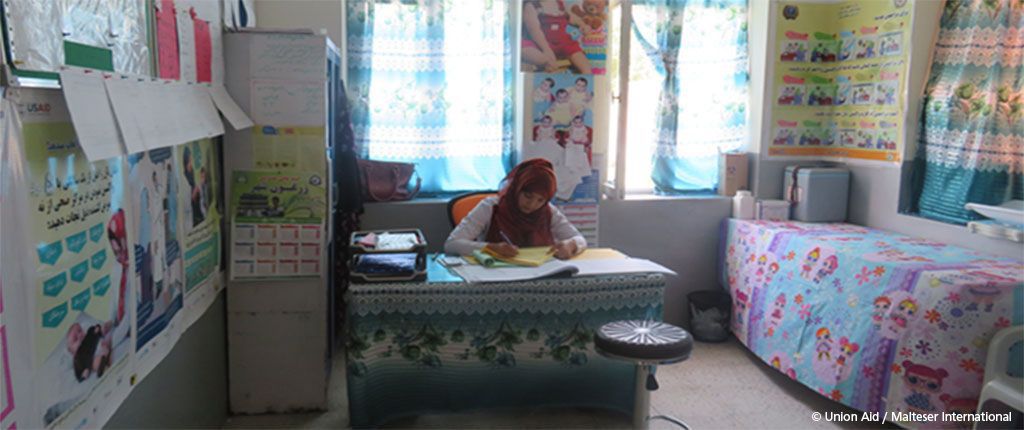
Improving health and nutrition for people in need in Afghanistan
The Taliban takeover dramatically increased the hardships faced by Afghans. The sudden political upheaval led to the collapse of basic services, financial systems, and public services. Many people have lost their livelihoods and prices for food and basic necessities are on the rise. People suffer from hunger and do not have access to basic health services. The need for help is urgent.
Together with our partner organization Union Aid, we have been providing basic health and nutrition services for malnourished children and pregnant women in the districts of Mazar-i-Sharif and Nahre Shahi in the Balkh Province since October 2022. By operating six basic health care facilities for over 143,000 people in the region, providing maternal and child health services, and offering health and hygiene training, we are making important contributions to the improvement of health and wellbeing in Afghanistan.
40 years of conflict combined with the worst drought in three decades, COVID-19, political unrest and recurring economic shocks have impacted the people in Afghanistan. Since the Taliban took power on August 15, 2021, the dire humanitarian conditions have worsened dramatically. 24,4 million people - nearly 60% of the country’s population - are dependent on aid.
The already strained health care system is fighting for survival. This has profound consequences: a surge in water-borne diseases, the lingering effects of the COVID-19 pandemic, the ongoing poliovirus virus endemic and the looming collapse of health financing.
The rise in poverty has dramatic impacts on the vulnerable populations in Afghanistan. Free health care services and referral systems are basically non-existent. For mothers, newborns, and children in particular, access to life-saving health services is limited. This leads to high rates of maternal and child deaths e.g., due to high-risk pregnancies. 620 mothers die for every 100,000 births. The child mortality rate for children under five is 55 per 1,000 live births (as of 2023), placing Afghanistan among the countries with the highest maternal and child mortality rates. Pregnant women urgently need prenatal and postnatal care, as well as access to skilled birth attendants. It is estimated that 20 percent of deliveries and 20 percent of newborns in Afghanistan require life-saving emergency interventions.
The nutrition situation is equally alarming. Fifty percent of the population faces acute food insecurity. In 2024, an estimated 850,000 children under five will suffer from malnutrition, down from approximately 1.1 million in 2022.
Our goal is to improve the health and well-being of vulnerable, crisis-affected people, particularly mothers, young children, and the elderly in Balkh Province by providing holistic and free healthcare with a specific focus on malnutrition and disease containment.
By putting the following measures in place, we ensure holistic health care for people in need in Afghanistan:
- Operation of six basic health care facilities (provision of staff, equipment and medicine)
- Trainings for health personnel
- Provision of health services for mothers and children (prenatal and postnatal care for pregnant women, birthing support, vaccinations for children under 1 year, awareness campaigns on nutrition of infants and young children
- Setting up health committees in villages
- Trainings for volunteers and community health workers
- Health education
- Nutrition education for malnourished and undernourished young children and pregnant women
This project is carried out under a joint grant with the German Federal Office with similar components in the neighbouring country Pakistan.
Country info
Capital: Kabul
Area: 652.864 km²
Population: ca. 40,1 Mio.
Project data
Donor: German Federal Foreign Office, Germany's Relief Coalition (Aktion Deutschland Hilft)
Partner: Union Aid, Afghan Women's Association e.V.








